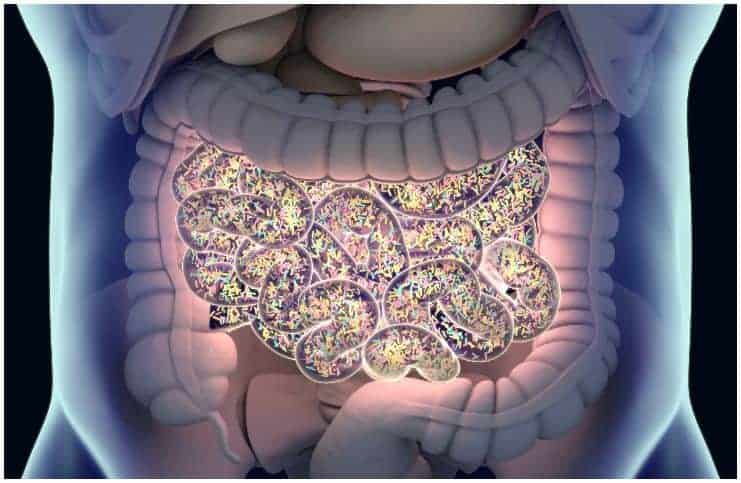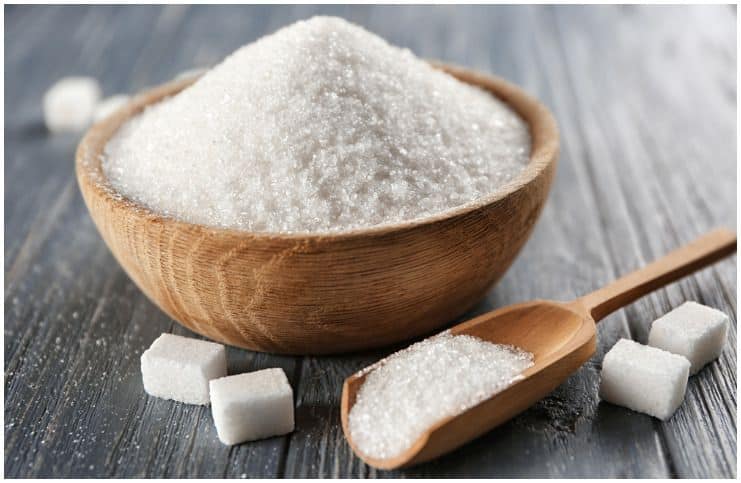We know that in the present days we have an epidemic of obesity and heart disease, which includes atherosclerosis, hypertension, high LDL cholesterol, and arteriosclerosis in most parts of the world.
The main reason for obesity is a slower metabolism due to a change in the diet, as well as sedentarism, inadequate sleep, lack of exercise, and too little time spent outside.
Here is a list of metabolism death foods which are killing you from the inside:
#1 Meat
Meat is one of the main acidic foods in the standard western diet. According to the World Health Organization (WHO), meat is a “carcinogen” which increases your risk of rectum or colon cancer by 18%. Furthermore, the higher the quantity of red meat (especially processed red meat) you ingest, the higher your risk of developing type 2 diabetes mellitus.
In addition, unlike the meat our parents used to consume, the meat you eat presently has probably been pumped with antibiotics (to prevent disease) and hormones (to make it grow faster).
#2 Dairy products
Dairy is one of the most inflammatory foods in our diet, 2nd only to gluten. Dairy products such as – cheese, milk, butter, ice cream, and yogurt, are sources of LDL cholesterol (note – LDL cholesterol levels should be less than 100 mg/dL) and saturated fat, and as we know, consuming foods rich in these unhealthy compounds may increase the risk of having heart disease and dying. Moreover, dairy products are mucous-forming and they may contribute to respiratory disorders.
Many individuals also have lactose intolerance, a common condition especially in Asia (more than 90 percent of the population), in which the body can’t break down the sugar in milk. The symptoms of lactose intolerance include:
- nausea;
- diarrhea;
- bloating;
- vomiting;
- gas.
#3 Eggs
Eggs are the single largest source of LDL cholesterol in the western diet. According to a 2012 study, they contribute almost as much to atherosclerosis as smoking does. Eating egg white also triggers allergic reactions in some people, causing symptoms like – swelling, rashes, diarrhea, nausea, wheezing, vomiting, and coughing.
Another side effect of eating eggs is the high risk of contamination, especially by specific bacteria named – Salmonella enteritidis. More than 100,000 people in the United States are poisoned by these bacteria due to egg consumption every year. According to a study, substituting eggs for plant protein led to almost twenty percent lower death risk.
#4 Vegetable oils and trans fats
A recent study showed that cooking your foods (plant-based or animal products) in vegetable oil for just 20 minutes produced 20 times the permitted levels of aldehyde (a compound that has been associated with heart disease, cancer, and dementia) recommended as a maximum limit by the WHO.
In addition, consuming foods high in trans fats raises your risk of developing cardiovascular diseases. Moreover, trans fats are linked with a higher risk of developing type 2 diabetes Mellitus. To reduce your oil consumption, stop intaking junk food as much as you can.
#5 Artificial sweeteners
They are found in a variety of beverages and food, marketed as “diet” or “sugar-free” food, and may actually be an important factor that contributes to the obesity epidemic worldwide. Aspartame (marketed as Equal and NutraSweet) is most likely the best-known artificial sweetener and can be found in coffee, diet sodas, and yogurt. Side effects of consuming foods that contain aspartame include – the development of hives (that can appear anywhere on your body) and disorders of the respiratory system (which can occur within minutes of ingesting this artificial sweetener).
#6 Sports drinks
Sports drinks are sugar-sweetened beverages that contain sodium, sugar, synthetic vitamins, and electrolytes which are lost during physical exercise. More importantly, since energy drinks are marketed as dietary supplements, they usually contain unregulated herbal stimulants like Guarana, Taurine, and Creatine.
Moreover, the majority of this type of drinks contains both high levels of acids and sugars – a lethal blend that damages the surface of teeth and ultimately may lead to tooth decay. Instead of commercially manufactured sports drinks, you can consume healthier hydration choices, such as – water, coconut water, or smoothies after your exercise.
#7 Caffeine
Caffeine is a pharmacologically active substance found in numerous beverages (naturally found in some teas), foods, prescription medication, and dietary supplements. It is a central nervous system stimulant, having the effect of restoring alertness and warding off drowsiness. An overdose of caffeine (plus long time consumption) may result in nervousness, depression, increased heart rate, peptic ulcers, hyperreflexia, headaches, tremulousness, irritability, shaking, anxiety, panic attacks, and insomnia.
According to Villanova University, 90% of the people in the US intake some amount of caffeine daily.
#8 Alcohol
Consuming alcohol could increase your heart rate, cause your blood pressure to rise, cause your heart to beat abnormally, and it may lead to weight gain. Alcohol drinks interfere with the brain’s communication pathways which can seriously disrupt the way the brain works and looks.
#9 Food additives
Substances added to beverages and foods are called food additives and have been used for centuries to improve the flavor and appearance of food and prolong shelf life. Side effects of food additives include – lack of energy, irritability, dizziness, headaches, many cancers (like – bladder, colon, thyroid, or stomach), infant health problems, metabolic damage, pregnancy complications.
If you want to avoid consuming food additives, there is only one method: avoid processed foods.
#10 Soft drinks
The average American consumes around 212 liters of soda per year, second only to water. Regular consumption of soft drinks is strongly associated with many health problems, such as – heart disease, type 2 diabetes, asthma, and obesity. Moreover, they are linked to lower absorption of calcium, magnesium, and essential minerals.
References http://acaai.org/allergies/types/food-allergies/types-food-allergy/egg-allergy http://www.sciencedirect.com/science/article/pii/S0278691517301709







